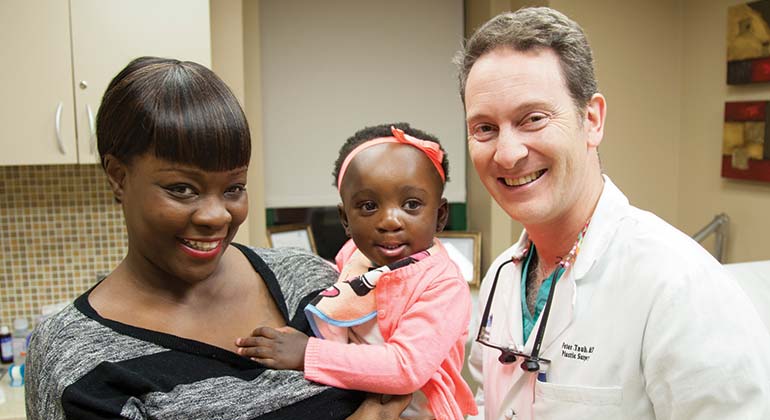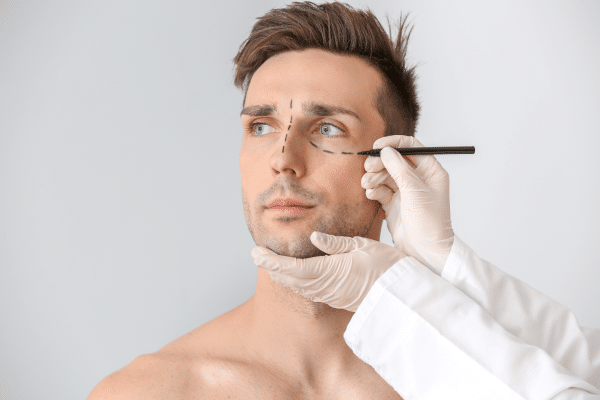Plastic Surgery Rancho Cucamonga: Enhance Your Self-confidence with Personalized Aesthetic Therapies
Plastic Surgery Rancho Cucamonga: Enhance Your Self-confidence with Personalized Aesthetic Therapies
Blog Article
Investigating the Mental and Social Variables That Drive People to Consider Plastic Surgery as a Way of Improvement
The choice to go after plastic surgery commonly prolongs beyond simple visual appeals, intertwining with social and mental dynamics that merit thorough examination. Factors such as self-esteem, prevalent societal charm criteria, and the pervasive impact of social networks assemble to shape specific motivations for surgical enhancement. As these impacts end up being significantly popular, recognizing the underlying psychological and cultural contexts is essential. What stays to be discovered is the profound influence these variables have not only on individuality but also on broader societal norms and values bordering beauty and acceptance.
The Role of Self-confidence
Self-worth significantly influences an individual's choice to go after cosmetic surgical procedure. People with low self-confidence usually perceive themselves in an adverse light, causing sensations of insufficiency regarding their physical appearance. This unfavorable self-perception can drive them to seek medical treatments as a method of boosting their self-image. The wish for improvement in one's appearance is frequently connected to a belief that such adjustments will certainly boost their overall self-worth and self-confidence.

Ultimately, the function of self-esteem in the decision-making procedure pertaining to cosmetic surgical treatment highlights the complex interplay between body image, individual contentment, and mental health. Recognizing this relationship is vital for medical care experts to ensure that individuals are making notified choices rooted in sensible assumptions and psychological health.
Social Appeal Requirements
Influenced by pervasive media portrayals and social narratives, social appeal standards play a vital duty in shaping people' understandings of their very own bodies. These criteria are usually characterized by an idyllic kind of charm that highlights traits such as balance, youthfulness, and slimness. As these suitables are bolstered with numerous channels, consisting of movie, tv, and marketing, individuals often internalize these messages, causing dissatisfaction with their all-natural appearance.
The implications of these societal norms extend beyond aesthetic choices; they can affect self-esteem, mental wellness, and social relationships. People that view themselves as falling short of these requirements might experience feelings of insufficiency, triggering a desire for plastic surgery as a means of accomplishing societal authorization. This search is typically sustained by the belief that adapting to these ideals will certainly improve not only physical look but also social standing and personal fulfillment.

Influence of Social Network
The impact of social beauty standards is more amplified by the increase of social media platforms, where curated pictures and idealized representations of elegance are ubiquitous. Individuals are frequently exposed to filtered and edited pictures, which commonly portray unattainable physical qualities. This direct exposure grows a culture of comparison, leading individuals to assess their own appearance against these usually impractical standards.
Social network influencers and celebrities frequently advertise cosmetic treatments, stabilizing the idea that medical enhancements are a practical methods for accomplishing societal suitables (plastic surgery rancho cucamonga). The exposure of these enhancements can produce an assumption that undertaking plastic surgery is a typical method, therefore affecting individuals to think about comparable interventions as a path to enhanced self-confidence and social acceptance
Additionally, the interactive nature of social networks permits immediate comments through sort and remarks, additionally enhancing the need to conform to prominent elegance requirements. Such interactions can exacerbate sensations of inadequacy and drive people towards cosmetic surgical procedure as a way of gaining validation. Inevitably, social media sites plays an essential function in shaping understandings of elegance, which dramatically impacts the decision-making processes bordering cosmetic surgical treatment.

Cultural Perspectives on Look
Across numerous societies, perceptions of look are deeply rooted in historic, social, and financial contexts, forming individuals' sights on elegance and desirability. In numerous societies, look offers as a substantial marker of identification, affecting social condition, specialist possibilities, and individual connections. For instance, in some cultures, light skin is frequently connected with wide range and privilege, while others may idealize darker complexion as icons of toughness and credibility.
Moreover, traditional beauty standards are typically bolstered through social Visit This Link narratives, media depictions, and household influences, leading to differing perfects throughout different regions (plastic surgery rancho cucamonga). In Western cultures, the focus on youth and fitness usually drives individuals toward cosmetic enhancement, while in particular Eastern societies, even more subtle adjustments lined up with typical aesthetics might be chosen
Globalization and the spreading of electronic media have better made complex these characteristics, developing a hybridization of beauty suitables that transcends geographical boundaries. As people progressively navigate these social narratives, the stress to adhere to certain look criteria can lead to the wish for plastic surgery, mirroring a complex interaction of cultural values and individual ambitions. Recognizing these cultural viewpoints is essential in addressing the inspirations behind cosmetic surgical treatment considerations.
Psychological Impacts of Cosmetic Surgery
Numerous people looking for cosmetic surgical treatment record experiencing extensive psychological influences that can considerably alter their self-perception and psychological health - plastic surgery rancho cucamonga. The desire for physical improvement frequently stems from underlying problems such as reduced self-esteem, body dysmorphic problem, or social stress regarding beauty standards. For some, the instant Resources post-operative phase can result in a short-term boost in self-confidence and fulfillment with their appearance, promoting a sense of empowerment
Nevertheless, these positive sensations may not be sustaining. Study shows that while some individuals experience improved self-confidence, others may deal with increased anxiety or clinical depression if their expectations are not satisfied. This inconsistency can arise from impractical ideals perpetuated by media depiction and social narratives surrounding appeal.
Additionally, the emotional ramifications of cosmetic surgery expand beyond the individual. Relationships with family members and buddies might be stressed as social dynamics change, resulting in sensations of seclusion or alienation. Ultimately, the psychological influences of cosmetic surgical treatment are complex and diverse, requiring mindful factor to consider by both potential individuals and healthcare carriers to make certain informed decision-making and reasonable assumptions.
Final Thought
In verdict, the choice to go after plastic surgery is considerably affected by a mix of self-esteem problems, social appeal criteria, and social point of views on appearance. The pervasive reach of social networks further worsens these pressures, advertising impractical suitables that people often aim to attain. Recognizing these psychological and social variables is crucial for attending he has a good point to the motivations behind cosmetic surgical procedure, highlighting the need for a much more nuanced conversation bordering appeal and self-acceptance in contemporary culture.
The choice to pursue cosmetic surgical procedure commonly prolongs beyond simple visual appeals, linking with mental and social dynamics that warrant complete assessment. Inevitably, social media plays a pivotal function in forming understandings of charm, which dramatically influences the decision-making procedures surrounding cosmetic surgery.
As individuals increasingly browse these social narratives, the pressure to adhere to specific appearance criteria can lead to the desire for cosmetic surgery, reflecting a complex interplay of cultural worths and personal ambitions.In verdict, the choice to seek cosmetic surgical treatment is dramatically affected by a combination of self-esteem concerns, social charm standards, and social perspectives on look. Recognizing these social and emotional variables is essential for resolving the motivations behind cosmetic surgical treatment, highlighting the demand for a much more nuanced discussion bordering appeal and self-acceptance in modern society.
Report this page